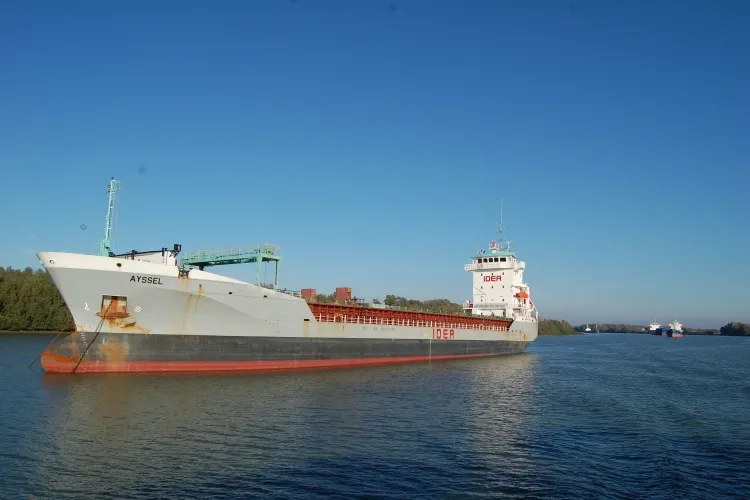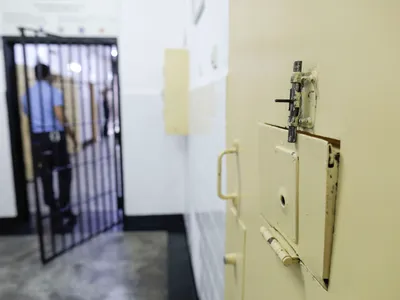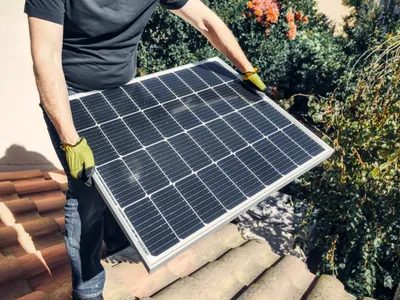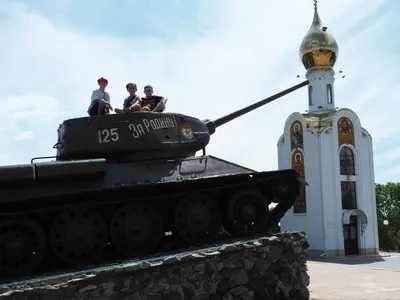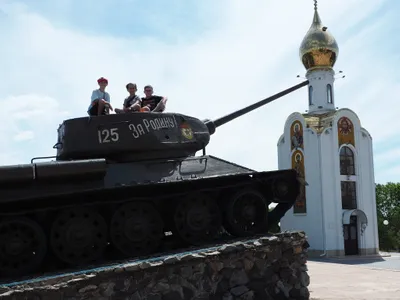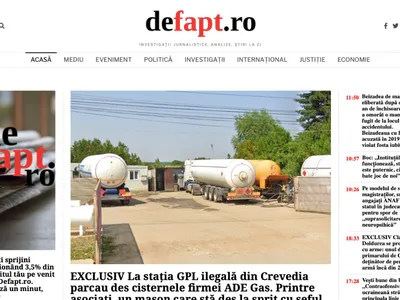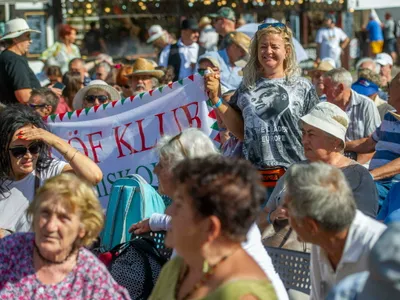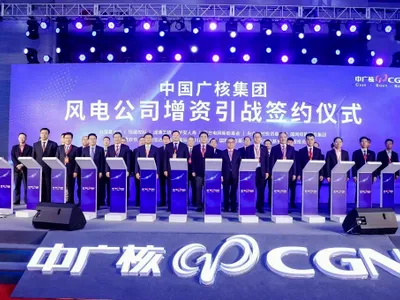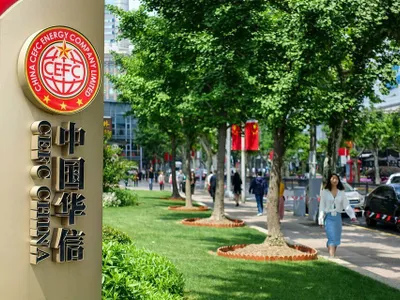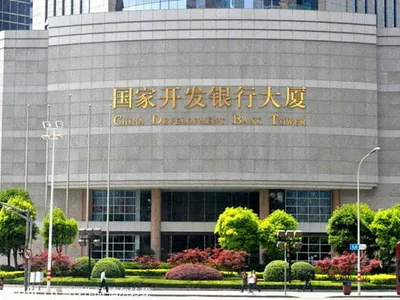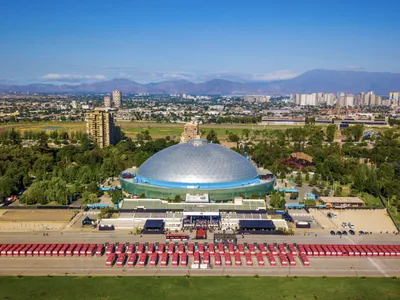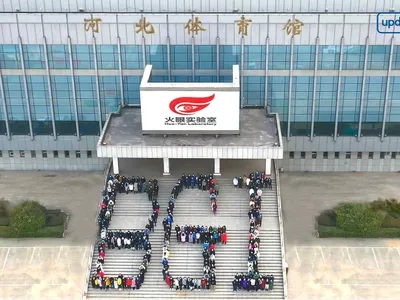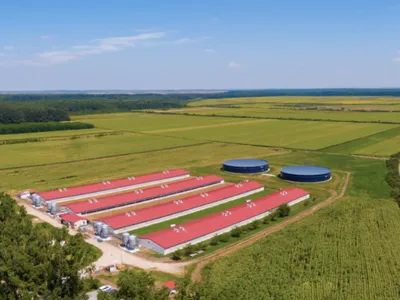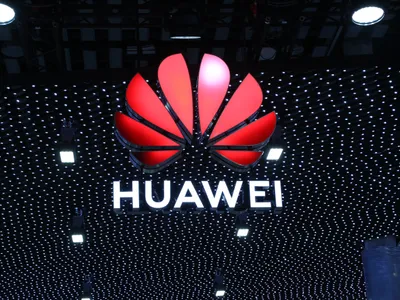Canalul Bîstroe, deschis traficului maritim greu
Cătălin Prisacariu, Oleg Oganov, Petru Zoltan ENGLISH version Canalul Bîstroe, deschis traficului maritim greu, în ciuda unui dosar în lucru referitor la impactul de mediu asupra Deltei Dunării. Comitetul ONU care analiza respectarea condițiilor de mediu a suspendat discuțiile inițiate de România pe dosar. Motivul: invazia rusă în Ucraina. Schimbarea la apă a Chiliei E o sâmbătă dimineață rece de noiembrie pe malul românesc al brațului Chilia. Până la începutul acestui an, pe apele Chiliei puteai vedea doar nave fluviale, în special barje care transportau mărfurile între porturile dunărene ale Ucrainei. Dar acum, brațul cel mai nordic al Dunării este împânzit de nave maritime. Peste apă de localitatea românească Pătlăgeanca, unde Dunărea formează brațul Sfântul Gheorghe, se află staționate șase nave maritime. Spre ele se îndreaptă în viteză o barcă militară rapidă în care sunt cinci militari. Din Pătlăgeanca până în localitatea românească Periprava, de-a lungul Chiliei, plutesc tăcut zeci de nave maritime și barje care așteaptă să intre în porturile dunărene ale Ucrainei. Din când în când, nave militare ucrainene se apropie și câteva uniforme urcă la bord pentru verificări: de la invazia rusească, malul ucrainean al Dunării este zonă militarizată. Român, străin pe Dunărea românească De la Periprava, ultima localitate românească aflată pe brațul Chilia, până la punctul în care canalul Bîstroe se desprinde din Dunăre se poate ajunge doar cu bărcile cu motor ale localnicilor. Există și o procedură neoficială de bifat înainte de a băga barca în apă: te înregistrezi, pe malul românesc, la postul românesc al Poliției de Frontieră, pentru a naviga în ape românești. Motivul: o precauție pentru o posibilă întâlnire cu grănicerii ucraineni pe Dunăre. Dacă se întâmplă asta, ca să nu riști să fii considerat spion, te prezinți și le recomanzi să ia legătura cu colegii români la care tocmai te-ai înregistrat ca turist în apele propriei tale țări. E război, nici un risc nu merită. După 20 de minute de tăiat apa cu barca cu motor, ajungem în jur de 09.30 chiar la locul în care o gură enormă se cască în malul ucrainean. În acest loc, canalul Bîstroe se desprinde de brațul Stambulul Vechi al brațului Chilia (sursa: Petru Zoltan) De acolo începe să curgă apa Dunării prin canalul Bîstroe spre Marea Neagră. Canalul Bîstroe, deschis traficului maritim greu Pe lângă noi trece nava cargo Iskander, aflată sub pavilion tunisian, care tocmai a ieșit de pe canalul Bîstroe. Cargo-ul Iskander tocmai a ieșit de pe Bîstroe și a intrat pe brațul Stambulul Vechi al brațului Chilia (sursa: Petru Zoltan) Datele site-ului Marine Traffic, consultate ulterior, au arătat că nava Iskander plecase din portul grecesc Vrisakia la data de 20 octombrie 2023 spre portul ucrainean Izmail, acolo unde a ajuns în data de 4 noiembrie, chiar în ziua în care am văzut-o noi intrând pe Chilia. După alte câteva minute, de pe canalul Bîstroe intră pe Chilia tancul petrolier Panjali Teymurov, aflat sub pavilion liberian. Petrolierul Panjali Teymurov tocmai a ieșit de pe Bîstroe și a intrat pe brațul Stambulul Vechi al brațului Chilia (sursa: Petru Zoltan) Tancul petrolier a ieșit de pe canalul Bîstroe aproape de malul românesc al brațului Chilia, apoi a continuat să meargă spre localitatea ucraineană Vâlcov, aflată vizavi de Periprava. Periprava: 80 de oameni și niște vaci libere Periprava mai are în jur de 80 de localnici, majoritatea lipoveni, care își câștigă existența din pescuit, creșterea animalelor și puțin turism. Vacile de lapte sunt lăsate să pască nestingherite pe pășunile din Delta Dunării tot timpul anului, alături de caii semisălbatici din Pădurea Letea. Atunci când vacile se reîntorc acasă, localnicii știu că se apropie iarna. În biserica ortodoxă de rit vechi, vopsită în albastru cu turle aurii, ține slujba un fost polițist de frontieră. La câțiva pași de aceasta se află singurul magazin din localitate. Aici, produsele alimentare și nealimentare se vând mult mai scump decât la oraș: sunt aduse cu barca pe Dunăre de la Tulcea, aflată la aproape 100 de kilometri distanță. Între orele 12.00 și 17.00, magazinul este închis, dar oamenii satului se întâlnesc pe terasa amenajată în fața acestuia. Pe unul dintre stâlpi clădirii care adăpostește magazinul local tronează o reclamă din tablă de pe vremea regimului comunist pe care scrie „Aici se vinde loz în plic”. Sub reclamă se află o masă din fier, vopsită în verde, în jurul căreia stau doi localnici. Pescari. Ce altceva? Cei doi sunt Mihai Slatarov (43 de ani) și Dumitru Simionov (55 de ani), doi dintre cei mai tineri adulți din sat. Bîstroe adâncit aduce mai multă scrumbie Cei doi localnici susțin la unison că lucrările de adâncire făcute de ucraineni la canalul Bîstroe au o parte bună și una proastă. Partea bună e că pe canalul adâncit a început să urce mai multă scrumbie pe Dunăre. Partea proastă e că, o dată cu peștele, vin și navele maritime din cauza cărora nu pot pescui ziua. Atunci când navele se apropie de malul românesc al Dunării, acestea taie plasele de pescuit ale localnicilor, susțin ei. Doar noaptea pot pescui pentru că atunci navele maritime nu mai circulă pe Dunăre din cauza războiului. „Bîstroe nu ne afectează deloc. De când a început, e mai multă scrumbie. Te uiți pe aplicație și vezi că trei vapoare urcă și patru coboară. Taie plasele. Anul trecut nu ne-au lăsat să pescuim seara, ne-a afectat foarte mult”, spune Mihai Slatarov. "Noi protejăm peștele pentru ucraineni" „Anul ăsta a dat drumul noaptea la pescuit. Noi trebuie să respectăm UE, avem prohibiție, e interzis să pescuiești dacă scade Dunărea sub 50 cm. Te uiți la ucrainean și vezi că ăla poate pescui și tu stai și te uiți pentru că nu poți. Ăla nu respectă nici o regulă. Noi protejăm peștele pentru ei”, îl completează Dumitru Simionov. „Pe mine mă prinde cu doi carași și îmi face dosar penal. Poliția de Frontieră face dosare penale dacă pescuiești când e Dunărea sub 50 cm”, a declarat Slatarov. Dumitru Simionov este pescar de pe vremea regimului comunist: „Fiecare cargo care vine pe Bîstroe ajunge pe malul nostru și ne taie plasele. Până dai comandă și își aduce plase de la Tulcea durează două-trei zile, timp în care nu poți pescui dar ești obligat să îți faci cota. Precum câinii suntem văzuți aici. Șurubul se strânge și ești obligat să pleci din Periprava. Înainte erau 27 de bărci de pescuit și acum mai sunt șase, poate șapte.”. Cum ajunge Dunărea în Marea Neagră Fluviul Dunărea este unul din cele mai importante căi europene de transport: nu doar că traversează zece țări, dar face legătura cu Marea Neagră. Anual, peste 20 de milioane de tone de mărfuri ajung pe nave maritime prin intermediul Dunării, potrivit datelor Comisiei Dunării. Legătura dintre Dunăre și Marea Neagră se face pe două căi: canalul Dunăre – Marea Neagră și canalul Sulina. Canalul Dunăre – Marea Neagră a fost inaugurat în 1984, este un canal artificial care a necesitat câteva decenii pentru a fi finalizat și se află pe teritoriul României. Canalul Dunăre - Marea Neagră, insuficient de adânc Anual, peste zece milioane de tone de mărfuri internaționale sunt transportate pe acest canal. Alte aproape șase milioane de tone de mărfuri transportate pe acest canal sunt românești. Avantajul canalului Dunăre – Marea Neagră, prin comparație cu canalul Sulina, este că face legătura dintre Dunăre și Marea Neagră mai scurtă cu cel puțin 300 de kilometri. Dezavantajul, însă, este că are o adâncime de doar șapte metri, ceea ce face ca pescajul maxim admis al navelor să fie de doar 5,5 metri. Cu alte cuvinte, pe canalul Dunăre – Marea Neagră pot naviga doar nave fluviale și nave maritime mici. Canalul Sulina, unicul navigabil din Deltă Canalul Sulina, pe de altă parte, este unul din cele trei brațe naturale principale ale Dunării și traversează, în drumul spre Marea Neagră, Delta Dunării. Sulina, însă, a fost amenajat încă din a doua jumătate a secolului al XIX-lea ca unic canal navigabil al Dunării, prin decizie a tuturor statelor implicate în proiect în cadrul Comisiei Europene a Dunării. Avantajul canalului Sulina, prin comparație cu canalul Dunăre – Marea Neagră, este că permite un pescaj al navelor de șapte metri. Cu alte cuvinte, vase maritime de mari dimensiuni pot naviga pe Sulina. Un aspect crucial pentru porturi ucrainene ca Reni și Ismail, aflate pe brațul dunărean Chilia, aflat la nord de canalul Sulina. Brațul Chilia este și granița naturală dintre România și Ucraina. Cu alte cuvinte, vasele maritime din Marea Neagră cu destinația Ucraina pot ajunge la porturi ca Reni sau Ismail doar intrând pe canalul Sulina și navigând în amonte, inclusiv prin intrarea pe Dunăre, până la Reni, sau în amonte pe Sulina până la confluența cu brațul Chilia, apoi navigând în aval pe acest braț, până la Ismail. Intră în scenă Bîstroe Iar o problemă majoră care a apărut după invadarea Ucrainei de către Rusia este că porturile Odesei nu mai pot fi folosite. Astfel, tot traficul maritim din Marea Neagră spre Ucraina a fost preluat de canalul românesc Sulina. Efectul principal – aglomerația: zeci de vase așteaptă zile, chiar săptămâni întregi să ajungă la Reni sau Ismail. Astfel, resuscitarea canalului Bîstroe a devenit vitală pentru Kiev. Bîstroe este un braț natural al Chiliei, unul din cele trei brațe principale ale Dunării. Bîstroe, de la desprinderea de Chilia, are 11 kilometri până la Marea Neagră. Acest braț are multe avantaje naturale: este un curs de apă rapid, ceea ce înseamnă că aluviunile nu se depun masiv; este lat de până la 200 de metri; nu este „parazitat” de insule și meandre. Și, poate chiar mai important, Bîstroe se află în integralitate pe teritoriul ucrainean, ceea ce permite Kievului administrarea directă a acestei căi navale. Reactivat după 65 de ani Traficul naval pe Bîstroe nu este o idee nouă. Potrivit unui raport al Institutului Științific și de Cercetări în Probleme de Mediu din Ucraina, „Navigația de-a lungul brațului Chilia și a brațelor deltei Chilia din regiunea Dunării a fost una dintre principalele activități tradiționale încă de la mijlocul secolului al XIX-lea. Porturile maritime Izmail, Reni și Chilia, situate pe brațul Chilia, au o vechime de 180, 160 și, respectiv, 120 de ani. Brațul Bîstroe a fost folosit pentru transport maritim până în 1958, după care a fost păstrat pentru uz militar. Din 1957 până în 1994, canalul Prorva a fost folosit pentru trecerea navelor cu un pescaj de 3,5-4,0 m în brațele Ochakov și Chilia, care au încetat să mai funcționeze din cauza sedimentării permanente.”. Convenție ONU imposibil de aplicat După zece ani, însă, în 2004, Ucraina a reluat proiectul activării canalului Bîstroe drept cale navigabilă. De data aceasta, însă, mai apăruse o variabilă în ecuație, în afară de provocările evidente de ordin logistic: statul vecin, România. Potrivit Convenției Espoo a ONU (adoptate în 1991 și intrate în vigoare în 1997), orice stat care are în vedere realizarea unui proiect major cu impact negativ semnificativ asupra mediului la nivel transfrontalier este obligat nu doar să evalueze impactul de mediu al activităților din proiect, ci și să notifice statele care ar putea fi afectate și să se consulte cu acestea în privința respectivului proiect. După cum arată zecile de documente schimbate vreme de aproape 20 de ani între România, Ucraina și UNECE (Comisia Economică pentru Europa a ONU, care urmărește respectarea prevederilor Convenției Espoo în Europa), cazul Bîstroe s-a dovedit imposibil de aliniat cerințelor Convenției Espoo. Ucraina și-a urmat planul Motivul principal: inexistența unor reglementări interne ucrainene care să transpună prevederile Convenției Espoo în legislație națională. În lipsa acestei legislații în vigoare, a arătat în numeroase rânduri UNECE, documentele furnizate de Ucraina în cazul Bîstroe nu respectau cerințele prevăzute de ONU și, prin urmare, nu puteau fi acceptate. Abia în decembrie 2020, UNECE a constatat că „Ucraina a adoptat și legislația secundară pentru a-și alinia reglementările interne cu prevederile Convenției Espoo”. În același document, însă, UNECE arăta că „își exprimă profunda îngrijorare cu privire la faptul că, din 2008, s-au înregistrat doar progrese limitate de către guvernul Ucrainei în ceea ce privește aducerea proiectului canalului Bîstroe în deplină conformitate cu Convenția și că foaia de parcurs nu a fost pusă în aplicare pe deplin”. Mai mult, UNECE menționa că „reiterează faptul că continuarea activităților de dragare constituie o nouă încălcare a Convenției”. Invazia rusă a oprit discuțiile despre mediu În martie 2022, însă, Comitetul de Implementare al Convenției Espoo, întrunit la Geneva, a decis stoparea oricărei activități în cazul Bîstroe. „Având în vedere invazia Ucrainei de către Federația Rusă, Comitetul a convenit să amâne pentru sesiunile sale ulterioare examinarea tuturor aspectelor legate de conformitate referitoare la Ucraina”, se arată în raportul întâlnirii. Proiect în trei faze Dar corespondența dintre Ucraina și România a continuat. Cele două părți au continuat să se contrazică pe tema schimbărilor de mediu determinate de lucrările atât la gura de vărsare a canalului Bîstroe în Marea Neagră, cât și pe brațul Chilia de pe granița româno-ucraineană, fără a se ajunge la un acord. Despre ce lucrări este vorba? Potrivit unui raport non-tehnic trimis autorităților române de către cele ucrainene, „Lucrări se execută în zona de ramificare a brațelor Stambulul Vechi și Bîstroe, precum și în bara maritimă a brațului Bîstroe. (...) În prima fază, se prevede reconstrucția unui baraj de închidere pe partea nordică a canalului de acces la mare, cu o lungime de 1.670 m, amenajarea unor gropi de gunoi de coastă și construirea unui baraj de dirijare a fluxului cu fortificații de mal pe 11 km de cale de navigație. În a doua fază, are loc reconstrucția traseului șenalului navigabil cu o creștere a adâncimii la7,68 m pentru trecerea navelor cu următorii parametri: lungime 125,0 m, lățimea 17,0 m și pescajul 5,0 m și construirea unui baraj de închidere pe partea sudică a canalului de acces la mare cu o lungime de 2.970 m. În a treia fază, are loc reconstrucția traseului șenalului navigabil cu o creștere a adâncimii la10,0 m pentru a asigura trecerea navelor cu un pescaj de până la 7,2 m și extinderea barajelor construite în cadrul primei și celei de-a doua faze cu 1.570 m, cu acces la mare la adâncimea de >10,0 m). Depozitarea solurilor de dragare este prevăzută în gropile de gunoi de coastă de pe malul stâng al brațului Chilia și în groapa de gunoi de mare existentă, situată la o distanță de peste 8 km de linia de coastă, la est de gura brațului Bîstroe.”. Kievul spune că dragări se fac și în delta românească Care și cât din aceste faze s-a realizat până în acest moment este neclar. Cel mai probabil, așa cum rezultă și din imaginile satelitare, dar și din imagini puse la dispoziție de partea ucraineană, faza întâi a fost realizată integral. Sunt toate aceste lucrări de pe Bîstroe, Stambulul Vechi și Chilia periculoase pentru mediu? Din punct de vedere al Convenției Espoo a ONU, verdictul a fost amânat nedefinit din cauza războiului de pe teritoriul Ucrainei. Din punctul de vedere al Ucrainei, nu există nici un pericol ecologic. În cel mai recent document oficial trimis de Kiev, în august 2023, ca răspuns la un set de observații și comentarii ale României, se arată că „Volumul activităților de dragare în timpul perioadei de funcționare a șenalului navigabil este comparabil cu activități similare din delta Dunării, în special dacă se iau în considerare activitățile de dragare din partea română; efectul cumulativ al acestor activități este relativ minor datorită separării lor în spațiu și timp și poate fi redus și mai mult prin coordonarea între agenții și transfrontalieră a acestor activități.”. Mai mult, potrivit aceluiași document, „Fauna din Delta Dunării s-a adaptat din punct de vedere istoric la schimbările naturale constante ale habitatului său, inclusiv la schimbările sezoniere ale conținutului de apă și ale parametrilor hidrobiotici hidroclimatici, astfel încât impactul activităților planificate asupra acesteia poate fi considerat minim.”. Oamenii de știință ucraineni nu au acces la Bîstroe De asemenea, „Activitatea planificată nu va avea ca rezultat tipuri suplimentare de impact antropic asupra speciilor și habitatelor din ariile protejate, dar activitatea planificată va crește intensitatea traficului naval. În același timp, impactul activității planificate asupra speciilor și habitatelor din aceste zone poate fi considerat minim.”, se mai arată în documentul citat. Pentru Administrația Rezervației Biosferei Deltei Dunării a Academiei Naționale de Științe a Ucrainei, însă, un verdict local este imposibil de dat. Potrivit unui răspuns al acestei instituții la solicitarea noastră, „Încă din primele zile ale războiului, accesul la zonele din aval de orașul Vylkove, inclusiv la gura de vărsare a Bîstroe, a fost strict interzis nu numai localnicilor, ci și serviciului de securitate de stat, administrației și tuturor angajații rezervației.”. Administrația Deltei ucrainene a Dunării, însă, a mai arătat, în ciuda evidențelor: „În același timp, știm din surse de încredere că nu a avut loc nicio dragare la gura de vărsare a Bîstroe, și, prin urmare, nu putem vorbi despre un impact, este pur și simplu imposibil.”. Grindeanu a cerut MAE să interpreteze măsurători Până în prezent, România a evitat o evaluare tranșantă. Toate documentele trimise de București Kievului insistă pe respectarea condițiilor cerute de Convenția Espoo și cer o analiză detaliată de impact ecologic. Totuși, un episod care a ieșit din normele diplomatice a avut loc în februarie 2023, când ministrul român al Transporturilor, Sorin Grindeanu, a afirmat public că „există semnale că în acest moment Ucraina face lucrări de dragare a canalului Bîstroe, acest lucru putând avea impact asupra mediului şi Deltei Dunării”. A urmat o inflamare a mai multor politicieni de la București, apoi Grindeanu a anunțat că vor urma măsurători pe Bîstroe și Chilia făcute în comun de specialiști români și ucraineni. În ciuda faptului că măsurătorile au fost realizate, ministrul Grindeanu nu a reluat subiectul pentru a prezenta concluziile. La solicitarea noastră de a prezenta măsurătorile comune, Ministerul Transporturilor a răspuns că „au fost identificate zone în care au fost efectuate lucrări de dragaj de investiție pe canalul Bîstroe (...) prin care s-a realizat adâncirea șenalului navigabil (lățime 50 metri) de la 5,85 metri (...) la 7-8 metri, situație constatată la momentul efectuării măsurătorilor. Lucrările efectuate permit navigația navelor maritime cu un pescaj cuprins între 6,3 și 6,5 metri. Menționăm că nu au fost identificate zone în care să fi fost efectuate lucrări de dragaj pe brațul Chilia.”. Mai mult, „Ministerul Transporturilor și Infrastructurii s-a adresat Ministerului Afacerilor Externe, solicitând punctul de vedere al MAE în ceea ce privește respectarea de către partea ucraineană a convențiilor, tratatelor și acordurilor incidente, precum și măsurile care se impun”, se mai arată în răspunsul instituției. MAE a răspuns: Nu e treaba noastră Cartoful fierbinte, însă, a fost pasat de MAE înapoi la Transporturi, așa cum reiese dintr-un răspuns al Ministerului Afacerilor Externe la solicitarea noastră: „În răspunsul transmis la solicitarea la care vă referiți, Ministerul Afacerilor Externe a învederat faptul că autoritățile competente să evalueze impactul lucrărilor efectuate de Ucraina pe brațul Chilia și pe canalul Bâstroe raportat la cadrul juridic bilateral și multilateral în vigoare, inclusiv prin interpretarea rezultatelor măsurătorilor tehnice efectuate, sunt Ministerul Transporturilor și Ministerul Mediului.”. Noi solicitări din partea noastră adresate Ministerului Transportului și Ministerului Muncii au rămas fără răspuns. UE trimite la ONU, care a luat pauză Pentru Administrația Rezervației Biosferei Delta Dunării din România, impactul lucrărilor pe Bîstroe va fi unul de durată. „Pe termen lung, vor fi efecte cauzate de adâncirea canalului Bâstroe, deoarece apar diverse procese de deteriorare, iar modificările în timp pot fi surprinzătoare și greu previzibile la momentul acesta, fiind posibile consecințe precum o mai acută lipsă a apei în anumite zone limitrofe.”, arată instituția într-un comunicat. La solicitarea noastră, institutul de cercetări GeoEcoMar din România a răspuns subliniind influența antropică: „Deschiderea a încă unui braț către navigația maritimă (față de cel prezent actual – Sulina – n.r.) nu va face decât să producă presiuni antropice pe o suprafață mai mare a deltei, mai ales în condițiile în care brațul Sulina este parte a rețelei de transport european TEN-T și, în condiții de pace, poate deservi porturile dunărene din România, Moldova și Ucraina fără probleme. Dacă situația internațională specială datorată războiului poate justifica această extindere și intensificare temporară a traficului, altfel va trebui judecată problema după sfârșitul războiului.” Potrivit unui răspuns trimis la solicitarea noastră, Comisia Europeană a arătat că nu i s-a cerut nici un acord din partea Ucrainei pentru lucrările pe Bîstroe, că nu a finanțat acest proiect și că responsabilitatea evaluării impactului de mediu aparține autorităților naționale, în acord cu prevederile Convenției Espoo. ___________________________________ Acest articol a fost realizat cu sprijinul Journalismfund Europe.
